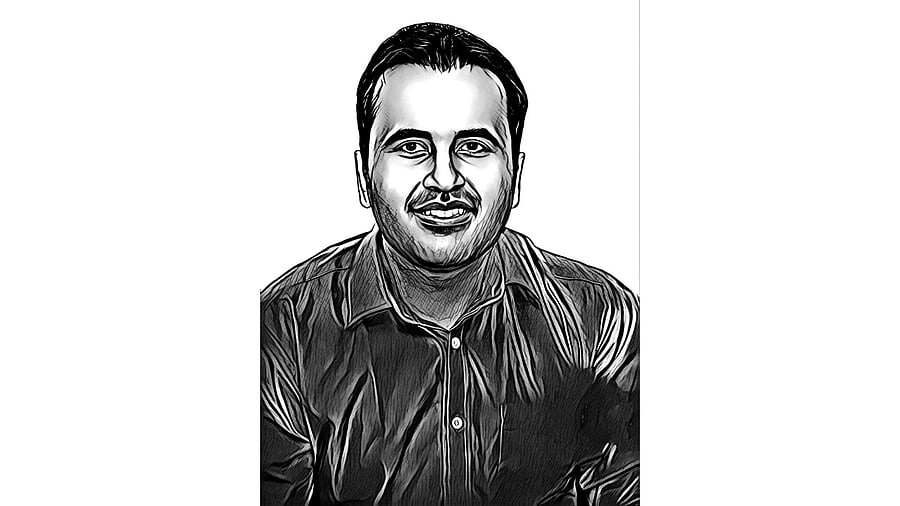
Rahul Bajaj is a practising lawyer with expertise in disability rights and IP law, and is co-founder of Mission Accessibility. He wears more hats than he can himself sometimes count. X: @rahul400
Credit: DH Illustration
On August 19, the Delhi High Court passed a sweeping order blocking access to both Sci-Hub and its sister platform Sci-Net from India. This outcome represents a turning point in the long-running litigation between international publishing giants and Alexandra Elbakyan, the founder of these so-called “shadow libraries.”
Yet, the court’s approach ultimately missed the deeper question of how Indian copyright law should balance exclusive rights with the constitutional promise of access to education.
In December 2020, Elbakyan gave an unequivocal undertaking before the court: no new copyrighted content belonging to the plaintiffs (Elsevier, Wiley, American Chemical Society) would be uploaded on Sci-Hub until further orders. That undertaking was repeatedly extended over the years. The plaintiffs, however, produced evidence in 2025 that this undertaking had been violated on two fronts.
First, Sci-Hub was found hosting works published after 2022. Second, Elbakyan had launched a parallel platform, Sci-Net, which invited users to request and access new copyrighted articles through cryptocurrency-based accounts.
The plaintiffs argued that this was a deliberate attempt to evade the court’s orders, pointing to screenshots, DOI-linked redirections between the two platforms, and hundreds of post-2022 articles available for download.
In response, Elbakyan admitted that new articles were accessible, but claimed this was due to a “technical error,” and argued that Sci-Net was a separate project not covered by the undertaking. The court rejected this defence, treating the undertaking as binding across both platforms.
In a 2019 case, the Delhi High Court had characterised websites that substantially host infringing content as rogue websites and outlined factors to determine their “rogue” -ness. The court held that Sci-Hub’s primary purpose was copyright infringement, its operator had shown blatant disregard for copyright laws, and it had already been blocked in multiple jurisdictions. Significantly, Elbakyan’s counsel sought discharge and stated he had no instructions. As a result, the court heard no substantive defence from the defendants.
The most striking omission from the order is any engagement with India’s fair dealing framework under Section 52 of the Copyright Act, 1957. Uses of platforms like Sci-Hub could plausibly fall within Section 52(1)(a) of the Copyright Act (fair dealing for private or personal use, including research) and Section 52(1)(i) (reproduction of works by a teacher or pupil in the course of instruction).
These exceptions have been interpreted liberally in Rameshwari Photocopy Services, where the Delhi High Court upheld the photocopying of course packs as fair dealing for educational purposes.
Extending that reasoning, one could argue that accessing paywalled articles through shadow libraries facilitates research and instruction, especially in a country where institutional subscriptions remain scarce and prohibitively expensive. Yet, because the court refused to hear the intervenors and because Elbakyan’s lawyer had no brief to argue these points, this line of reasoning was never developed.
At the very least, the court could have acknowledged that Sci-Hub represents the wrong answer to the right question: how do we ensure affordable access to research at scale? Data on publishing economics underscores this crisis. The global academic publishing market is worth billions, with profit margins touching 40% for major publishers. Subscription costs can reach $40,000 annually for a single journal, making them unaffordable even for well-resourced universities like Harvard. In India, the situation is worse, with underfunded institutions and students left to depend on informal or illicit access routes. Shadow libraries emerged as a grassroots response to this structural inequity. Blocking them without simultaneously addressing the underlying affordability gap leaves the right to education and research hollow.
Indian courts have progressively interpreted the Right to Education (Article 21-A) to extend beyond schooling and to include professional and higher education. The Supreme Court has held that financial constraints cannot justify the denial of access. In that light, blocking shadow libraries without exploring State-facilitated alternatives undermines this constitutional promise. The State could – and should – take responsibility for bulk subscriptions or open access initiatives, much like the proposed One Nation, One Subscription scheme. Until then, shadow libraries fill a gap left by policy inertia.
By classifying Sci-Hub and Sci-Net as “rogue”, the court closed the door on platforms that, while unlawful, addressed an undeniable social need through an order framed as an open-and-shut piracy case. But the reality is more complex. This was a golden opportunity for the court to recognise that the real conflict is not between authors and readers, but between publishers’ monopolistic interests and the public’s right to knowledge. Instead, by adopting a narrow infringement lens, the court has blocked access without addressing affordability, leaving India’s students and researchers in the lurch.
The writer is a practising lawyer with expertise in disability rights and IP law, and is co-founder of Mission Accessibility. He wears more hats than he can himself sometimes count.
(Disclaimer: The views expressed above are the author's own. They do not necessarily reflect the views of DH.)